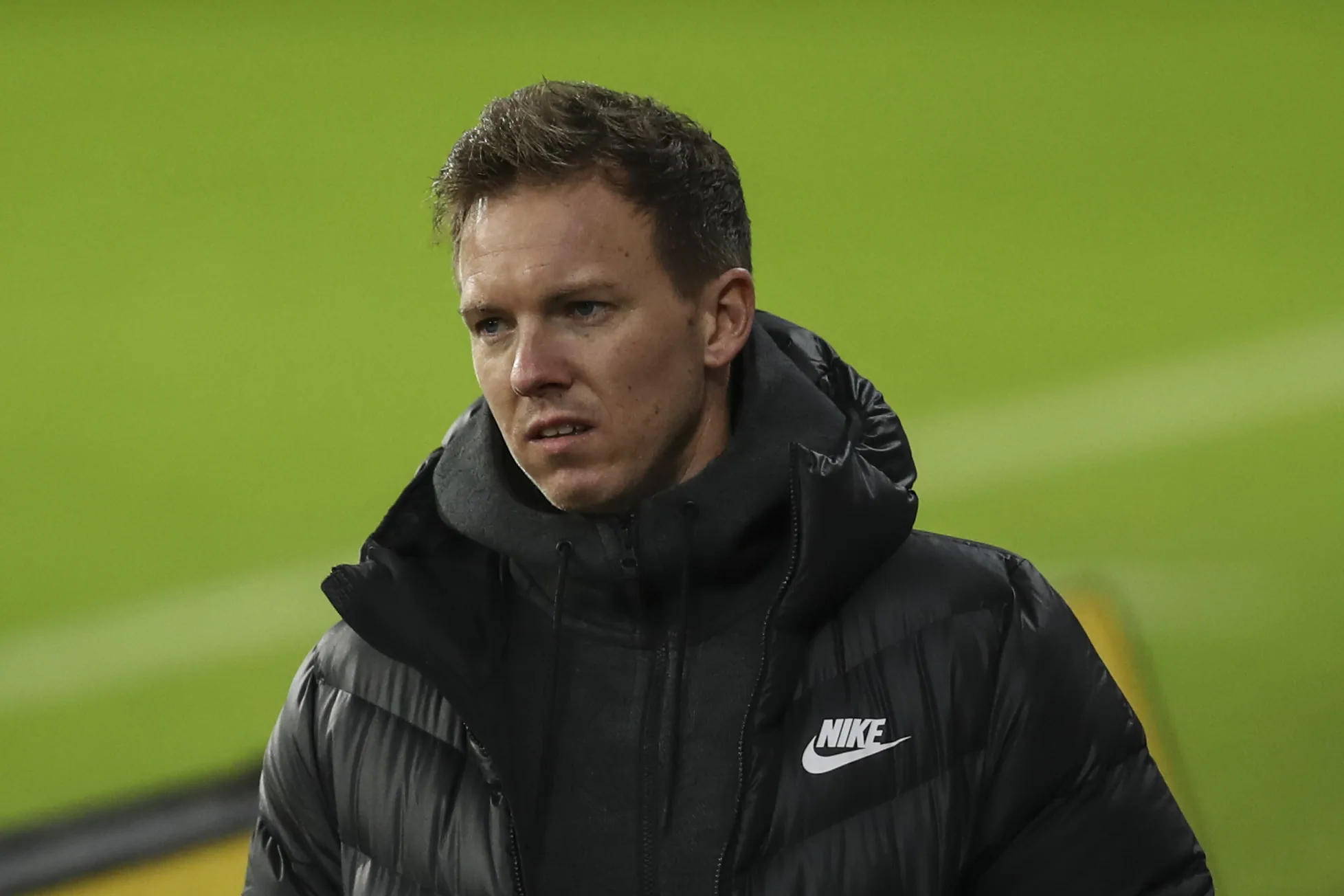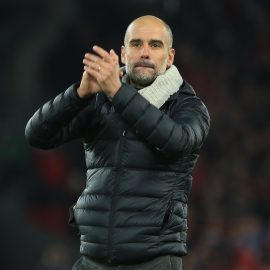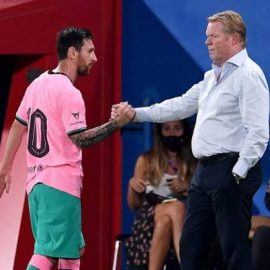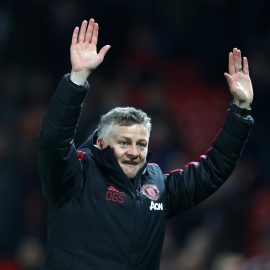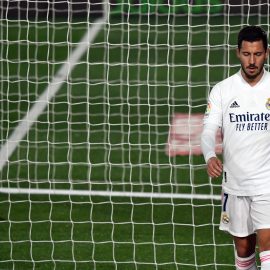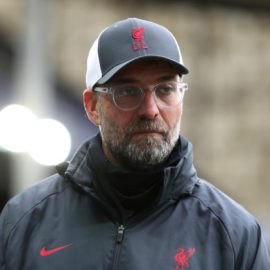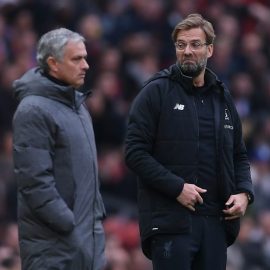In Hugo Steckelmacher’s second of his profiles on great English managing prospects in the Football League, he looks at the playing and managerial career of Middlesbrough great Tony Mowbray.
When I sat down to think about how to write about Tony Mowbray, I realized that I couldn’t have picked a better week for the conception of such an article. During the next seven days, the past, the present and the possible future of Middlesbrough FC will mingle in a type of round robin. On Tuesday, former ‘Boro incumbent Bryan Robson’s Sheffield United travel to Mowbray’s high-flying West Bromwich Albion, and this fixture is followed by Saturday’s fixture between Middlesbrough and Sheffield United at the Riverside stadium.
“If you were on a rocket ship flying to the moon, the man you would want sitting next to you would be Tony Mowbray.” — Bruce Rioch
They say that a team reflects the playing and thinking style of its manager. I’m not too sure of the reliability of such claims, but if this is the case — Roy Keane’s battling Sunderland, Johan Cryuff’s spectacular Barça could be cases in points — Tony Mowbray (né Anthony Mark Mowbray, 22/11/1963 — age 44) is the exception that proves the rule. Then again, Mowbray is not one to conform to stereotypes: this is an Englishman who bucked the trend by taking a first managerial appointment over the border in Scotland, when the flow of managers in recent times has been absolutely in the opposite direction.
As a player, Mowbray was tough as nuts and as hard as nails. Think Razer Ruddock and Julian Dicks crossbred with a Yorkshire Terrier. Better make that a North Yorkshire, or a Tees terrier. Mowbray was uncompromising, determined, resolute and passionate. He was the working class hero, the prodigal son of Middlesbrough, a gladiatorial figure who took a club threatened with liquidation to the Promised Land of the top division. As a manager, Mowbray is a silky sultan with a golden staff, calm and eloquent as he watches over a troop of skilled performers.
A native of Saltburn, east of Middlesbrough, Mowbray’s rise to the prominent position of MFC club captain at the tender age of 22 — Mowbray was so quintessentially Middlesbrough that the fates would have his debut come against none other than Newcastle!, a game in which he was given the job of marking the great Kevin Keegan — came in inverse correlation to the near-tragic fate of his football club. Following a couple of seasons of steady decline, in which most of the club’s prized assets (Proctor, Armstrong, and many more) had to be sold in order to keep the club afloat, matters hit breaking point for Middlesbrough FC in the 1985-6 season. April 1986 saw the club having to borrow £30,000 from the PFA in order to pay players wages, whilst debts incurred through an accumulation of loans, some related to the expansion of the now-defunct Ayresome Park.
‘Boro’s relegation to the Third Division, confirmed on the last day of the season, would prove the catalyst for the dramatic events soon to unfold. With debts now as high as £2 million, the club was taken to court by the Inland Revenue for unpaid tax, and on the 2nd of August Ayresome Park was repossessed, staff sent home and the gates to the stadium padlocked. All of the signs pointed towards the club being liquidated, and a turbulent summer of desperate attempts on the parts of supporters and ex-players seemed destined to bear no fruit.
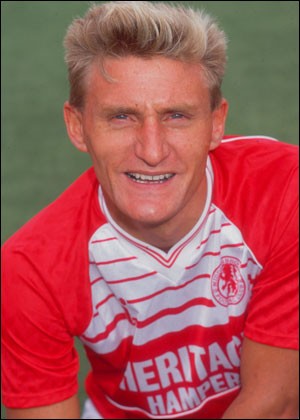
The fixture was completed and remarkably in the circumstances, ‘Boro managed to pull together a 2-2 draw, courtesy of an Archie Stevens double. Gibson, who remains probably the most revered figure in the town of Middlesbrough to this day, had made his money the hard way, having set up a business named Bulkhaul Ltd, later to become a multi-million-pound company, from a £1000 loan bestowed by his father. The man who now has a key to the city had purchased the keys to Ayresome Park, and it was in this arena that Tony Mowbray would leave a lasting legacy.
1986/87 would end up being a dream season for a club that had so recently been on the verge of extinction. The spirit of the draw with Port Vale was carried on throughout the season, and a side guarded at the back by a triumvirate of local lads — Pallister, Cooper and Mowbray himself — would go on to beat all the odds by finishing in 2nd position and obtaining promotion back up the Second Division. Of the trio, Mowbray was the least successful: Pallister would move to Manchester United for a British record fee of £2.3 million, and Cooper would gain 2 England caps. But it is Mowbray’s battling qualities, and the immense pride he displayed in captaining his club, that are immortalized in ‘Boro folklore, attributes embodied in Mowbray’s numerous crucial goals for ‘Boro, such as the last-minute equalizer against Everton in the 1987-88 FA Cup, or the late winner against Villa in the same season.
What’s more, the thoughtful Mowbray is fully conscious of his responsibility as a Middlesbrough legend:
“Middlesbrough are my team. It is where I was born and bred and brought up and I watched them for the formative years of my life.“I played there for 12 years, captained them through liquidation and promotion to the top division and walked them out at Wembley in a cup final against Chelsea – the ZDS Trophy in 1988. I had some great days there. You don’t erase those memories.”A quotation from Anthony Vickers’ excellent post should suffice to capture the Mowbray effect:
“Mogga is the one that attained iconic demi-god status. He was a good player, a great leader and an industrious and committed defender who scored his share of goals but it goes beyond that. Mogga is the one who the crowd identified with: a worker, a battler, a gritty never-say-die, bleed-for-Boro supporter transported to the pitch as a cypher for us all.”
Mowbray would stay at his hometown club until 1991, during which time ‘Boro would once more rise as high as the First Division, return to the depths of the Second Division, only narrowly stave off relegation to the Third, before the club reached its first ever Wembley final in 1990. Fittingly, an unfit Tony Mowbray — Mowbray had been plagued by injuries throughout his playing career — led out his side, as ‘Boro lost by 1-0 to Chelsea in the Zenith Data Systems Cup, a memory that has crystallized in the minds of many a Middlesbrough fanatic.
Mowbray was sold to Celtic for a fee of £1 million the following season. Although he made some 76 performances for the club, including an excellent debut, Mowbray’s time at the club coincided with the “barren years”, and Mowbray would end his time at Celtic trophyless. What’s more, Mowbray would once more find himself at a club on the cusp of financial meltdown, as Celtic were reportedly just 8 minutes away from being officially declared bankrupt in 1994 before expat Fergus McCann stumped up the cash to balance the club’s £5 million overdraft.
Aside from the club’s internal and external struggles, Mowbray’s stay at the Glasgow giants was marred by considerable personal tragedy, with Mowbray’s Glaswegian wife Bernadette Doyle Mowbray dying of breast cancer at a tenderly young age. Mowbray’s classy reaction to such a painful situation was typical of the man: he suggested that the club’s players form a huddle before the match to show their respect, a practice that continues up to this day.
In 1995, Mowbray moved to Ipswich Town, where he would play as team captain under George Burley (now Scotland manager), who played the role of both friend and mentor. All of the qualities of Mowbray’s great playing career were encompassed as Mogga dragged his team from a losing position to victory in the 2000 play-off final against Barnsley. 1-0 down following Craig Hignett’s early goal for the Yorkshire side, Mowbray equalized midway through the first half, and was one of the star performers along with keeper Richard Wright (who made save after fantastic save, including stopping a penalty) as Ipswich made it 5th time lucky in the play-offs. What a way to call time on your playing career!
Yet perhaps it was in the nature of that final, and in the flamboyant style of that Ipswich team (who would finish in 5th position in the Premiership the next season), that the seeds of Mowbray’s managerial career were planted. A 4-2 scoreline and plenty of entertainment would hardly seem alien to Mowbray’s mob at Hibernian and now at West Brom.
Mowbray bided his team before launching into full-time management, although he did work as a coach for several years at Ipswich, as well as being caretaker manager for 4 matches (1 win, 2 losses, 1 draw) before Joe Royle’s appointment as manager.
In 2004, Mowbray was appointed manager of Hibernian, much to the chagrin of many of the club’s supporters, still reeling from the dull failure of the apathetic Bobby Williamson. Hibs chairman Rod Petrie recalls the interview with Mowbray which convinced him to opt for the former Celtic man as manager:
“Tony was also someone I was struck by, who had thought it all out, knew what he wanted to do and was ambitious and committed 100 per cent to what we wanted to achieve.”
A statement from Mowbray upon his appointment at Easter road best summarizes his tenure at the club, a reign which finally satisfied the romantic fans hungry for entertainment on the pitch :
“I am well aware, from my time in Scotland, of the stature of this club and its tradition for entertaining and attacking football. I would like to let the supporters know that my philosophy is all about fast-flowing, passing football with a cutting edge. That is what I will be working to instil here at Hibernian, and that is what I am determined our supporters will see. They want to win, and they want to be entertained. It is our job to give them that.”
Mowbray’s time at Hibs was supremely successful, and laid the foundations for the club’s thriving at both league and cup level over the last couple of years. Mowbray plumped for a policy based on youth, excitement and good football, and this policy paid dividends. A glimpse of what was to come came during Mowbray’s first month in charge: Hibs charged into a 4-1 lead over Dundee United before being pegged back to 4-4. Mowbray was cultivating a brand of exciting and enthusiastic football, and as soon as he had the blend right, things were going to rocket along.
Mowbray’s first season at Hibs was a huge hit. Lacing the home-grown talents of Garry O’ Connor, Derek Riordan and Scott Brown with the acquisitions of the likes of Dean Shiels, Sam Morrow and Guillaume Beuzelin, Mowbray’s Hibs maurauded to the semi-finals of the Scottish Cup, where they were unluckily defeated 2-1 by Dundee United, and went on to finish the league in 3rd place — fittingly qualifying for Europe in the year which commemorated the 50th anniversary of Hibs’ entrance into the European Cup, the first time any British club had been invited to do so. The team that went to Celtic Park and played their hosts off the park contained no fewer than four teenagers.
Mowbray would win the Football Writers’ Manager of the Year award for his efforts in his first full season at Hibs, as well as receiving many plaudits from the likes of Chick Young, who claimed that Hibs were playing the best football in the country by some distance. Although the following season would not be quite as successful — the club finished fourth, and were humiliated by Ukrainian club FC Dnipro Dnipropetrovsk in the UEFA Cup first round before being thrashed by city rivals Hearts in the Scottish cup semi-finals — Mowbray’s team continued to play exciting passing football, managed to twice thrash Rangers 3-0 at Ibrox, and the gates at Easter Road continued to flourish, and this at a time when attendances across the country were reaching an all-time low. If the turnstiles could speak, they would certainly have sung eulogies about Mogga. In the words of Colin Leslie:
“His predecessor infamously suggested that you should try the cinema for entertainment, not the football pitch, but Mowbray has always understood there is an appreciative audience at Easter Road if an attractive product is on offer. One game last season springs to mind when it became clear how Hibs had progressed. A cold February evening match against Livingston would have struggled to bring in 6,000 during the Williamson era. More than 12,000 were at Easter Road to see Mowbray’s Hibs, and were rewarded with a 7-0 success.”
Mowbray departed the following year for West Bromwich Albion, following an inconsistent start to the 2005-6 campaign. Although derided by some critics for their exits in the semi-finals of the cup, Mowbray’s legacy was on the whole overridingly positive. Mowbray’s record against the Old Firm was unmatched, whilst his positive approach to man-management had united and by and large kept together an exciting squad, with Ian Murray and Gary O’ Connor the only major walk-outs, and this due to the chairman’s scrimping rather than to a fall-out with the manager. The importance of Mowbray’s relationship with his players — Mogga famously defended Derek Riordan after the teenage firecracker was arrested after a night out — became saliently obvious in the light of the mutiny engineered by the Hibs players against new boss John Collins, an insurrection which resulted in the departures of Scott Brown and Kevin Thomson, amongst others. Although he did lose a couple of semi-finals, at least he was getting the club there in the first place.
Mowbray also left a lasting heritage on the Hibernian youth set-up. The Hibs Kids, Mowbray’s bunch of talented and motivated Scottish youngsters, including 6 Scottish starters under the age of 24, had developed in laughable facilities, and the club had been lucky to strike rich with such a group. However, Mowbray was insistent that the club’s facilities would have to be improved, and played a vital role in the planning ansd construction of a 3m youth academy — a policy Mowbray would later repeat with his input into WBA’s T-Mobile Football Centre.
Mowbray left the club four days before the Edinburgh derby, but his team’s performance in that match was in many ways an apt homage to their departed coach. For the first half hour, Hibs looked like world beaters, slicing through the Hearts defense at will and launching into a two goal lead. However, two defensive and goalkeeping howlers, somewhat typically, let Hearts back into the game. As always with Mowbray’s Hibs, the fans were left licking their lips in delight, but the fare offered up was never quite good enough to quench the long-suffering desire for trophies.
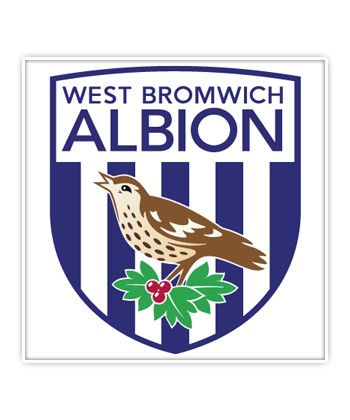
Free-flowing performances against Leeds, Ipswich and Palace under the stewardship of caretaker-manager Nigel Pearson had set a precedent, as well as putting WBA back into 4th place in the Championship. Mowbray initially did little to add to his squad: a more important job came in persuading the likes of Zoltan Gera and Curtis Davies to stay at the club, although the addition of the clever midfielder Robert Koren enhanced Brom’s midfield efficiency.
Winning his first two games with a goal difference that read “scored 5, conceded 0”, the omens were good. However, this type of form proved only intermittent for Mowbray. WBA were entertaining and frustrating in equal measure; a veritable Jekyll and Hyde of the Championship, devastatingly powerful at the Hawthorns and limply impotent away from home. In October the team had ridiculed Ipswich 5-1 at Portman Road and had come up with a win at Crystal Palace to back it up. Unfortunately these successive away triumphs were followed by 4 defeats in a row on their travels.
February saw an emotional FA Cup tie against Middlesbrough lost on a penalty shootout (5-4) after a replay, and the defeat seemed to take the wind out of Mowbray’s team. In a nightmare month of March, the Baggies lost 3 matches on the trot, leaving their automatic promotion in tatters. Mowbray and WBA eventually had to rely on a victory in their final fixture of the season in order to guarantee a place in the play-offs. Somewhat typically, though, West Brom bulldozed Barnsley 7-0 at the Hawthorns, and, despite finishing 4th in the table, established themselves as early favourites for the play-offs. After dispatching Wolves comfortably at the Hawthorns in the second leg of the semi-finals, West Brom came up against Billy Davies’ disciplined Derby County, in a tie quickly dubbed the “battle of the styles”. Unfortunately for the Baggies, it was the well-oiled Derby machine that triumphed, and Mowbray’s second visit to Wembley ended in the same way as the first: with a disappointing 1-0 reverse.
Chairman Jeremy Peace’s response to this disappointment was to keep faith with Mowbray, and the two prepared themselves for the inevitable “fire-sales”. Kuszczak, Davies, Ellington, Kamara, McShane and Koumas all departed, though Zoltan Gera remained loyal to the Mowbray cause. Rather than grumble about having the core of his squad torn apart, Mowbray took advantage of his first opportunity to remould his Albion side with the astute purchases of the likes of Tininho and Bostjan Cesar (one of my candidates for “find of the season”) reinforcing the permeable defensive line. In midfield, James Morrison and Ishmael Miller have been absolute revelations, as his Chris Brunt in his short time at the club, whilst up front, Roman Bedmar has formed a lethal partnership with a rejuvenated Kevin Philips. The squad has also been strengthened, with the likes of Craig Beattie capable of coming in from the cold and changing a game, as the Scot did in Albion’s recent victory over Leicester City, whilst the signing of Graham Dorran proves that Mowbray is also capable of spotting future talent.
If West Bromwich Albion in their first season under Mowbray bore a great resemblance to the Arsenal of recent years — stylish and flamboyant at home, too easily bullied by physical sides away from home, and far too prone to conceding from set-pieces — Albion have again emulated Arsene Wenger’s side in their rebuilding job this season. Still capable of the odd shocking away performance — witness Saturday’s insipid fare away at Burnley, or the consecutive away defeats to Southampton and Colchester — Mowbray has generally constructed a much less brittle team, a team far more capable of grinding out results away from home, as they did at the Walkers Stadium back in December, a performance repeated against Plymouth just weeks later. Going forward, West Bromwich Albion continue to be a pleasure to behold, and have scored 66 goals in just 31 games this season, at a ratio of greater than two goals per game. Despite Saturday’s loss, WBA currently find themselves in 2nd position in the Championship and continue to be many people’s tip for champions. Incidentally, The Baggies are still in the FA Cup and, facing a trip to Ian Dowie’s Coventry in the last 16, are favourites to reach the quarter finals for the first time since 2001.
Style of Play
One of the most refreshing aspects of Tony Mowbray’s management is the exciting football employed by his teams. Mowbray empowers young players due to their enthusiasm, and relies on the basic (but oft overlooked, in this day and age) tactic of “pass and move” football with which Liverpool and Tottenham set alight the league in the ’60s and ’70s, and with which the likes of Manchester United and Arsenal persist obdurately. In contrast to other managers such as Billy Davies and Aidy Boothroyd, Mowbray believes in the ethics of entertainment and passing, for which reason he has been almost unanimously lauded by football experts. Mowbray himself has affirmed such principles on numerous occasions, as for example when he spoke about unshackling Chris Brunt from his defensive duties:
“‘I don’t want him chasing back all the time to our final third of the pitch, I want him further up, where his great skill can do the damage,” he said. “I’ll always want my teams to spread the play out, to express themselves. I refuse to compromise on retaining the ball, rather than relying on scraps from knockdowns’.”
Here are just some of the testimonies that have poured forth regarding Mowbray’s teams:
“Not for Mowbray the conventional route into the promised land – the long ball up to the rugged target man, the knockdown to the speedy support players for the breakaway goal, then squeeze the space allowed to the opposition […] Mowbray is commendably dismissive of the ‘Route One’ style and he has the pedigree to back up his convictions. While managing Hibernian, he preached the gospel of possession football, of wearing down teams by accurate passing. […] As first-team coach at Ipswich, he helped George Burley achieve a miraculous fifth place in the Premiership in 2001 by the same insistence on the passing game.”
— Pat Murphy
76-year-old season ticket holder Cyril Randle:
“I am pleased with his appointment as I understand he ‘plays to win’. We have been bored witless with the last two managers overall. Both set out with the premise ‘not to lose’. Mowbray wasn’t my first choice for manager, that would have been Kevin Keegan, but the fans will back him if he entertains us.”
Unsurprisingly, only one of WBA’s 31 league fixtures this season finished goalless, and matches involving the Baggies have produced the incredible total of 106 goals. For any who would like to sample the seductive recipe of Mowbray football, I recommend you look no further than the delicious 4-2 victory over Alan Pardew’s Charlton, a match which received universal acclaim for the high quality football on display.
Transfers
At Hibs, Mowbray worked wonders with a minimal budget and faced with a chairman who put profit before success, for which reason Mowbray’s team was primarily founded upon Hibernian youth players. This is not to say that Mowbray’s transfer policy at Hibs was a failure: the acquisition of Merouane Zemmama Mowbray proved a real coup, whilst Hibs’ defense did improve thanks to Mowbray’s purchases at the end of his first season.
At WBA, Mowbray has performed admirably in the transfer market, especially when we consider that he inherited a fairly unhappy squad, most of whom had their eyes on a summer departure from the Baggies. When a bunch of his players did leave this summer, Mowbray did not squander the money, and the signings of Cesar, Pele, Bedmar (signed from Hibs’ Edinburgh rivals Hearts), Morrison, Teixeira and Miller have been superb. Bedmar, who originally signed for Hearts thanks to the talk he was given by Mowbray’s former mentor George Burley, has in particular flourished in recent weeks, with 10 goals in 11 starts for his new club.
Management Style
Mowbray has been quick to distance himself from the “hairdryer” style of management. Belying his thorny reputation as a footballer, Mowbray is eloquent, fair and sensitive as a manager, and a picture of serenity on the touchline. As he himself puts it: “I do football and I do family… That is all I do.”
Mowbray’s approach has been a categorical triumph, as demonstrated by the performance and testimonies of players under his scrutiny. Mowbray brought the best out of the likes of Scott Brown and Derek Riordan, and is enormously popular with his players, as demonstrated by the revival of the likes of goalkeeper Dean Kiely, who was out in the cold at Portsmouth. In addition, West Bromwich Albion chairman Jeremy Peace has recently gone on record to praise the atmosphere created by Mowbray and his team.
The following are a series of eulogies paid to Mowbray by players at both Hibs and WBA.
Dean Shiels: “When I came up to Edinburgh to look at the club, the manager told me about his plans and how I fitted in. I have not regretted it. I worked with good coaches at Arsenal, and Tony Mowbray is up there. “He can lose his rag like the best of them, but he would much rather talk to his players than scream and shout, or kick things around the dressing room.”Ishmael Miller: “Tony Mowbray was why I signed” (Birmingham Mail) “But Tony Mowbray is probably the main reason I signed. I like him as a person and hopefully he likes me. He’s brought the best out of me and credit to him.I’ve got a lot of respect for him and he can make me a better player.I know he’s going to take the club places”
Bedmar, article from Edinburgh Evening News: “West Brom try to play football the proper way and it’s an unbelievable time just now. I’m not thinking about anything else but football here. […] Tony Mowbray has made a real difference to me. I think he’s a great gaffer, one of the best I have worked with. When he was in Scotland you saw how Hibernian played and he is great on the training field. He played football at a high level so he knows what he is talking about. […] For me, this time is similar to when I arrived at Hearts. We had a similar atmosphere, everybody believed and we were winning a lot of games with George Burley. My first season at Hearts was a fantastic memory and now I am playing in another great side”
Equally, Mowbray has demonstrated an excellent knowledge of footballing psychology, and has implemented a few innovations as a manager at both West Brom and Hibs. At Hibs, one tactic proved particularly efficacious in helping his players focus: he used to ensure that his players remained motivated before the match by daubing famous motivational phrases on the dressing room wall: “In football if you stand still you go backwards” (Peter Reid) one of many examples.
In this final quotation, Mowbray himself grandiloquently sums up his own approach:
“I’m a manager with a belief really. I try and manage on a philosophy of playing, a philosophy of life and I try and expect the standards from my players that I try and bring myself to the party. I feel, however you live your life, whatever you do away from the training pitch, however you apply yourself, will bring the benefits….so I am a philosopher coach. If you want to stick a label on something; I believe in a way of playing, I believe in a way of living your life and I try and bring those qualities to the job…integrity, honesty, humility. I want my footballers to be all those things as well if we can, so when we win I don’t want us bleating about it and when we lose we just get back to hard work, take it on the chin and move on. Humility for me is one of the most important human traits and allied with hard work, you give yourself a chance.”
Achievements
The Scottish Football Writers’ Association Manager of the Year — 2004 (at Hibernian)
West Bromwich Albion: Manager of the Month, Coca-Cola Championship, September 2007. (also nominated in November and December 2007)
Managerial Statistics (from Soccerbase)
| Team | From | To | Games | Won | Lost | Drawn |
| West Brom |
18-10-2006 | Present | 78 | 39 | 23 | 16 |
| Hibernian | 24-05-2004 | 13-10-2006 | 108 | 52 | 40 | 16 |
| Ipswich | 11-10-2002 | 28-10-2002 | 4 | 1 | 2 | 1 |
Future Plans
There is no doubt that Tony Mowbray is destined for the Premiership, a destination he should reach first with West Brom, whose passing side brimming with quality should have a better chance of Premier League longevity than the likes of Derby, who boasted a hoofing squad entirely lacking in Premiership ability.
However, for Mowbray, the man after whom the ‘Boro fanzine “Fly me to the moon” took its name, even the sky isn’t the limit. Whilst ‘Boro fans see a return home as written in the stars — and many MFC supporters were bemused to see Mowbray spurned after Steve McClaren’s departure — Mowbray in my view has both the stones and the charisma to rocket into a top 6 job.
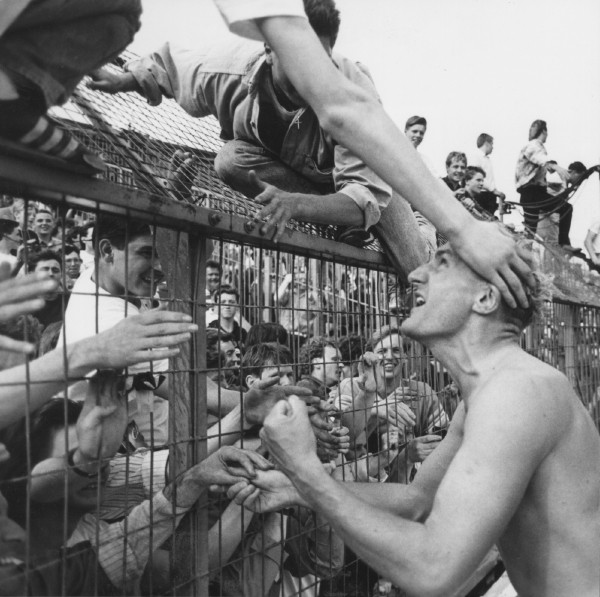
Add Sportslens to your Google News Feed!
